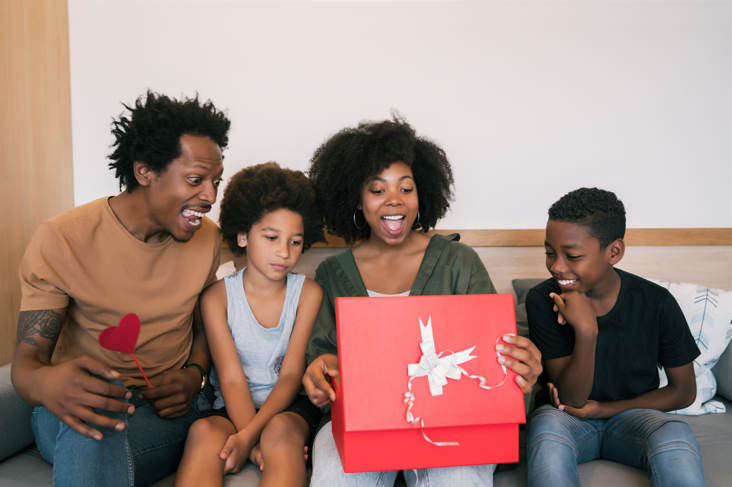Good manners for kids are a fundamental rule of behaviour that teaches a child how to act in a social setting. This knowledge is necessary for the development of an attractive personality and a socially acceptable disposition in a child.
As a parent, you need to establish good manners in your kids from an early age. They need to know that the way they treat people demonstrates their regard for them.
Here are 20 must-do good manners for kids:
Manner #1: Saying ‘Hello’ and ‘Goodbye’
“Hello” and “goodbye” aren’t just polite greetings. These words allow your kids to communicate with others. When they say “hello” to someone, they are opening a room for a conversation. “Goodbye” indicates that the talk has come to a close for the time being. A polite goodbye sets the tone for the next time they meet with their friend(s). You also want to find a fun approach to have your child eager to welcome others properly and confidently.
Manner #2: Saying “Please” and “Thank You”
“Please” is the perfect way to ask a question or favour politely. Anytime your children ask for something or need help, remind them to say “please” when making their request. Encourage them to also say “thank you” after the task has been completed.
Manner #3: Saying “Excuse me”
When your kids need to interrupt a discussion, encourage them to say “excuse me.” When they run into someone, tell them to say “excuse me” and let the person know that they did not do it on purpose.
Manner #4: Encourage your child to use “Mr.” or “Mrs.”
The next on this list of non-negotiable good manners for kids is to encourage your child to address elders using appropriate titles such as “Mr.” and “Mrs.” rather than their last names. Honorific titles are used to refer to someone who deserves to be respected. Calling someone “sir” or “ma” may be desirable in various cultures.

Manner #5: Making introductions
Teach them to introduce themselves to adults and friends who come visiting. This is a significant step towards more formal introductions for your child.
Manner #6: Covering their mouth when they sneeze and cough
Every time your kids’ cough or sneeze, encourage them to cover their mouth and nose with a tissue. If they don’t have access to tissue, they may have to cough into their elbow. Coughing into their hands or the open air is never a good idea. When coughing or sneezing, they should always turn their face away from others around them.
Manner #7: Making eye contact during a discussion
Making eye contact while speaking shows that they are paying attention to the speaker and the discourse. Teach your child to avoid distractions during a discussion. This is one of the good manners for kids you also want your child to adopt.
Manner #8: Asking for permission
Encourage your child to seek permission before touching or taking things. It is a courteous thing to do.
Manner #9: Never use foul language
When children are out in public, they may hear inappropriate words from other children or family members, from television and music, or even from their parents. It is a good idea to talk about word choice with your kids. They may or may not completely comprehend the meaning of a swear word but let them understand that words have the potential to harm or offend others.
Manner #10: Returning borrowed items
Train your child to return borrowed items as quickly as possible, whether it’s a pencil, book, or bag. Remind them to also express gratitude to the person who lent them the item.
Manner #11: Learning to seek apology
Teach them to say “I’m sorry,” “I apologize,” or “forgive me” when they do wrong. Tell them that an apology is a respectable approach to admit their mistakes.
Manner #12: Complimenting / Praising others
Giving and receiving praise is another skill that children should learn at a young age. It is one of the most efficient methods for instilling good manners and socially acceptable behaviour.
Manner #13: Not to argue with elders
A pertinent good manner for kids is that arguing with elders should be discouraged from a child’s early age. As a parent, you want to encourage them to exercise self-control and patience if they are frustrated by a choice made by an elder. However, they should be free to actively engage with elders.
Manner #14: Knocking on doors before opening
Children should be taught to knock on doors before entering a room. Encourage them to knock on closed doors and wait for a response before entering.
Manner #15: Following good table manners when eating
Promote good table manners such as; washing hands before meals, proper use of cutlery when eating, putting away toys at mealtimes, not talking with food in their mouth, and cleaning up after themselves.
Manner #16: Never to make fun of people
Let your child know that it is disrespectful and harmful to laugh at a person’s flaws or to bully them. Teach them kindness and compassion instead.
Manner #17: Being kind and helpful to others
Being kind and helpful is an important life skill that eventually makes a child responsible.
Manner #18: Polite phone protocol
Let your child understand that it is polite to greet the person on the other end of the line and listen carefully while they speak, maintaining a soft tone.
Manner #19: Learning to share
Sharing one’s possessions, time and items is an important aspect of social life. It shows they care and are compassionate.
Manner #20: Being honest in every situation
Teach your child to be honest by constantly being honest with them rather than cover up and lie. Also, anytime your child is honest, tell them how proud you are of them.
Finally, when you see a display of these good manners for kids in your children, make sure to praise them. Embrace them, and tell them how much you appreciate their kindness and respect for others.


